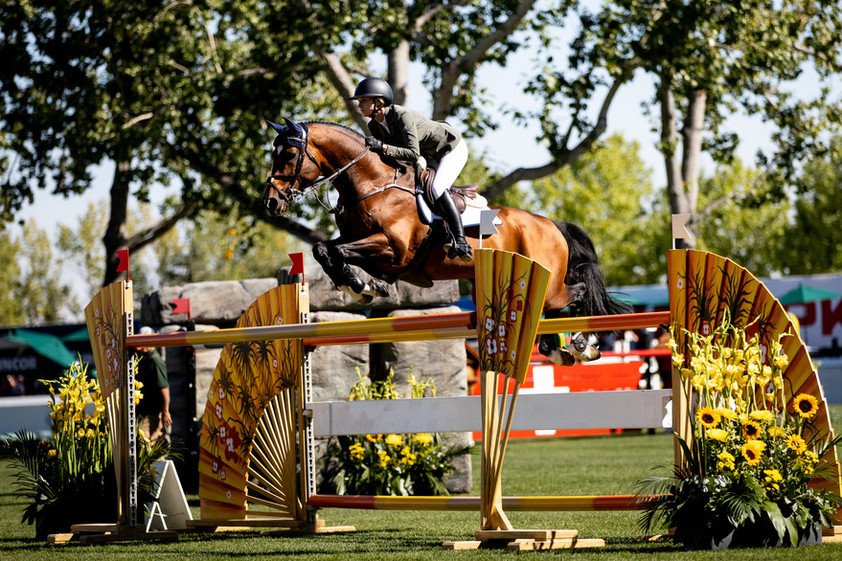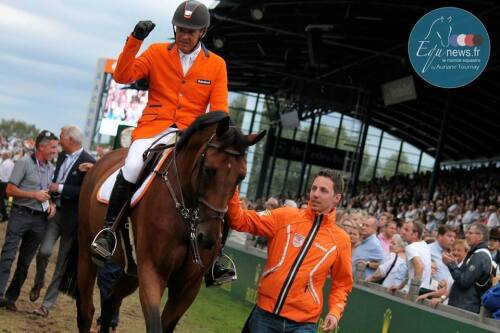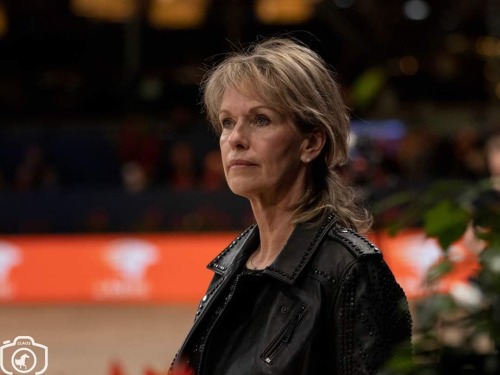Last week, USA's Lillie Keenan was on point at the Spruce Meadows 'Masters'. "Whenever you get to jump in any of the Rolex Grand Slam of Show Jumping Majors it is incredible feeling, they are really the epitome of show jumping. Spruce Meadows is a prestigious and historic venue – the best in the world have competed here and fought for that that title, and so just to be part of it is in an honour."
Can you tell us about your top horse at the moment, and what unique characteristics they have?
Right now, my top horse is Argan De Beliard, who I will jumped in the CPKC ‘International’ Grand Prix, presented by Rolex. He is also the same horse that I jumped in all of the Rolex Grands Prix this year. He is definitely a veteran, he knows his job incredibly well. We call him Mr. Consistency – he is always fighting for a clear round, and he understands the role. A lot of horses, that are considered the best, understand the sport, and he is definitely one of them.
He is not the most exciting horse to watch, and I think that is one of his strengths – he is so reliable. Usually, for these big Grands Prix there are always big tests and questions that have to be answered and to have such a reliable partner makes my job a lot easier.
Could you tell us about how important it is to have a good partnership with your horse?
Our sport is unique because you have two souls, not one. You have to work together, and you cannot yell at each other like you could with a human teammate. You have to find other ways to communicate, and find your own language with each horse. You only achieve this by spending time with them, and I think being very sympathetic is incredibly important.
One of the unique aspects of our sport is that men and women compete on a level playing field – I think that a huge asset for women is the ability to communicate in a way that may not come as naturally as for a man. You have to use your strengths, I have found that when I have a really strong partnership with my horse, and they know that I trust them 100%, they then trust me more.
Argan De Beliard is a horse that I have had for a number of years now, but we were able to very quickly jump the big tracks at the beginning of our partnership. He was an easy horse to trust and I am very grateful he let me be his person. At the highest level of the sport, with the risks you have to take, the strongest partnerships and relationships are the most successful.
You graduated from Havard – what lessons did you learn from your education that you bring with you to your career now?
I have learned a lot from having the opportunity to be educated – obviously it was a massive privilege that I had the chance to not only go to school but also to be able to pursue my career at the same time. Many have to make choice between the two, but I was in the unique situation that my family made it possible to do both.
It was never really a question, if I would go to college, but with riding it was always a choice. I think, in a way, I feel I have so much to prove, because I was given a leg-up and a lot of opportunity, and I don't want to waste that. I am very aware of how lucky I am, and really grateful for that.
Going to college with kids that didn't even know what I did or that sport is called show jumping was a gift, because I could fall off on Sunday in the biggest Grand Prix, or I could win, and on Monday morning, my classmates would have no idea, and I was just Lillie. That was such a privilege.
I think that in any pursuit that someone is extremely passionate about, it's so easy to get in your own head about it. I'd say that for most of the riders at this level, our self-worth is often defined by our most recent result, and that can be incredibly debilitating. So, I would say the number one lesson I learned is that life goes on, and we are so lucky to work with an animal, to be outside, to do something that is incredibly rewarding.
So obviously, I learned a lot in terms of academics, and I'm a bit of a nerd, so I loved that. I actually kind of I miss some of that, but I would say for my life, the biggest lesson is the perspective that it has given me and the immense gratitude that every day I am able to wake up and ride a horse.
What is the best piece of advice you have been given and who gave it to you?
I have gotten a lot of very good advice over the years, but I would say it's probably two things. The first would be my mother always reminded me that this is a choice and something that I choose to do. So when I'm really hard on myself, she likes to remind me of that. I think that it is incredibly valuable, because it is a choice – one that I'm very lucky to have.
The other major piece of advice came from McLain Ward. When he started to help me, I had lost a lot of confidence in myself, and in my ability as a rider. I'm very open about that, because I think for young people it is important to see. We watch all these riders that we consider superstars or just athletes in any sphere, and they all go through periods of self-doubt, but you don't necessarily see that. Especially as a woman, I think it's important to make clear that it is normal.
When I started working with him, he reminded me that I am good enough, that I have the ability to be the best. I repeat those words to myself every time, I feel like I could have done better. If he believes in me, then I must actually be good. I think I believe him more than I believe myself!
How do you remain focused and cope with the pressure before you go into the arena?
I'm definitely an individual that does better with more pressure, and that's something that I've practiced. The very first time I went to a show on a pony, my mother told me that I needed to imagine I was going into the jump-off for the gold medal at the Olympic Games. I say this to people now, and they always think that it could not be true. But it is so very true! You can ask the woman that taught me at the time.
I think that it's about practicing that pressure, and you often hear people say you have to use pressure as an advantage, and do not let it crush you. Of course, there are days that it can be very hard and the pressure can get the better of you. However, it's something that I tried really hard to work on, and I try to make the most of every opportunity that I get to jump at this level.
I am very lucky that the first time that I jumped in a five-star competition, I was 17-years-old. So, although I'm not old, I've done it for 10 years, and hopefully it's just the beginning! I would say there is nothing quite like practice and holding yourself accountable. I was always the type of kid in school that could be in tears before a test because I just couldn't stand the idea of failure. I would say that that's my personality type and probably why I've gotten used to a lot of pressure.
What advice would you give to young riders who are aspiring to compete at the highest levels of the sport?
I would say two things. Number one is to stay in school as long as it is physically possible. I get pushback on that. Obviously, not everyone has the opportunity that I did, but now with post-Covid, the way that a lot of education has transformed to online there are a lot more options. I still take courses online and try to expand my brain. In my opinion, it is incredibly important to just being a well-rounded person. Before I went to college, there were a number of riders that said to me: “Why are you bothering to do that? You have so much talent and you're going to ride anyway, so why not just ride?” But the sport is always going to be there, and the horses are going to be there. I think in order for our sport to grow, and keep up with the global dynamic and how the world is changing, that it's important to really push yourself and get educated.
The second thing I would say is don't be afraid to reach out to someone that you admire, and you might get a ‘no’, but that's the worst case scenario. There is so much opportunity now, between all of the live streams. You can watch almost any Grand Prix in the world, and if you can't watch it live, you can watch it back. If you get the chance to go to a horse show, watch the warm-up arena. Often people overlook that, but that is really where you see a rider. The best riders don't have one type of horse, they can ride multiple. So, watch and ask questions. I think you'd be surprised how willing the top riders are to help younger people.
What qualities do you think a horse and rider has to have in order to a Rolex Grand Slam of Show Jumping Major?
I would say, as a pair, they have to have trust in each other, they have to have desire to win, and they have to have confidence. I would say those are the three major qualities. You see all different types of horses and riders that can win a Major, like in today’s class, but as a partnership, that they really need to have those three things.



